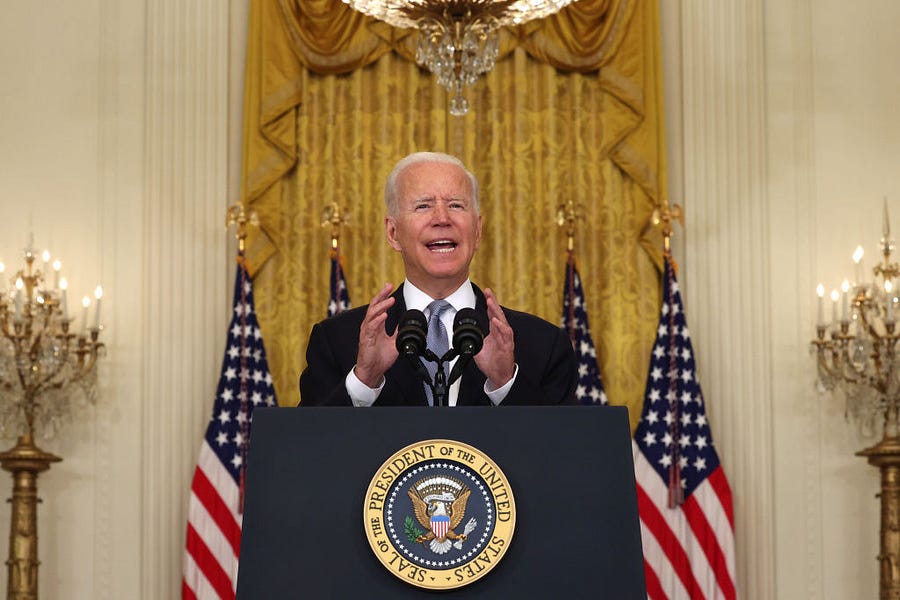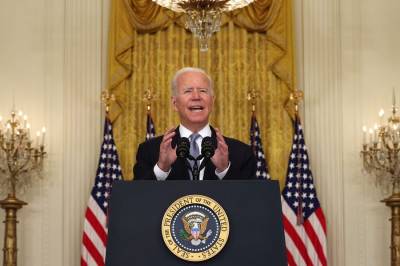On August 16, the day after the Afghan President Ashrag Ghani fled the country and the Taliban seized control of Afghanistan, President Joe Biden addressed the nation, emphasizing that he “stood squarely” behind his decision to withdraw troops from the country.
In response to criticism that he should have evacuated Afghans sooner, Biden responded, by saying that: “some of the Afghans did not want to leave earlier — still hopeful for their country.”
While Biden’s statement may be true, it's misleading given the many thousands of Afghans who'd already registered their desire to go.
On June 4, more 20 lawmakers wrote to Biden expressing the need to evacuate Afghan allies and explaining the formation of the bipartisan group, “Honoring Our Promises Working Group,” which called on Biden to “prevent the Afghans who served by our side from being killed in the wake of our withdrawal by groups like the Taliban, ISIS, and Al Qaeda.”
The letter notes that the Afghan Special Immigrant Visa (SIV) process “takes an average of 800+ days,” and that “ it is clear that the process will not be rectified in time to help the 18,000+ applicants who need visas before our withdrawal.”
For some more context, as explained by the Migration Policy Institute , the first SIV program was developed in 2006 and “allows entry annually for up to 50 Afghan or Iraqi interpreters or translators who worked with U.S. armed forces for at least one year.”
The Migration Policy Institute also notes that the SIV program had a significant backlog, reporting “[A]n estimated 18,000 Afghan allies and 53,000 family members remained in the processing backlog earlier this year.”
Furthermore, on June 29 of this year, the International Rescue Committee noted in a press release that with 18,000 applications in “the current pipeline,” a “potential of 53,000 individuals including family members” may be affected. The statement continued: “The State Department estimates it will take more than two years to process those in the pipeline. There are also thousands of Afghans ineligible under this program who are in dire need of protection.”
If you have a claim you would like to see us fact check, please send us an email at factcheck@thedispatch.com. If you would like to suggest a correction to this piece or any other Dispatch article, please email corrections@thedispatch.com.







Please note that we at The Dispatch hold ourselves, our work, and our commenters to a higher standard than other places on the internet. We welcome comments that foster genuine debate or discussion—including comments critical of us or our work—but responses that include ad hominem attacks on fellow Dispatch members or are intended to stoke fear and anger may be moderated.
With your membership, you only have the ability to comment on The Morning Dispatch articles. Consider upgrading to join the conversation everywhere.